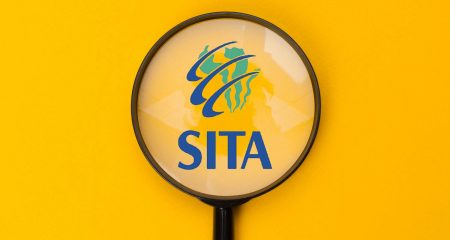
The ruling ANC wants a broad overhaul of policy and regulation in SA’s information and communications technology (ICT) sector to grow the industry and ensure universal access to broadband and other technologies.
In a detailed overview of the sector, tabled on Monday for discussion ahead of the party’s 2012 National Policy Conference in June, it admits the institutional framework within government is “perhaps the greatest barrier” to effective planning and the deployment of infrastructure and services.
Among other sweeping proposals, the ANC wants the department of communications to be transformed into a new “department of information and communication technologies and postal services” to co-ordinate government-wide ICT policy formulation and oversee its implementation.
In addition, it wants a National ICT Forum comprising government and industry to engage on “critical issues of mutual interest”. Civil society should also be invited to participate in the forum, the ANC says.
The party wants a range of state institutions and companies, including Sentech and Broadband Infaco, to be “rationalised” to address overlaps, duplication and what it calls “undue competition within the state”. The discussion document highlights a need for Sentech and Infraco to be merged into a new entity and given preferential access to radio frequency spectrum to build a wholesale, open-access wireless broadband network.
This infrastructure to be built by the merged company must prioritise government services and provide modern communications services to government departments, municipalities, schools, hospitals, clinics, police stations and courts. Excess capacity should be used to further connect rural areas to help achieve universal access to high-speed broadband by 2030.
There must also be “equitable allocation” of spectrum to new licensees, including small, medium and micro enterprises, with a focus on companies that have at least between 30% and 50% direct black ownership, the ANC says.
Government should provide financial support capital to new operators starting businesses to provide services to underserviced communities. These entities should also be entitled to mandatory preferential interconnection rates with established telecommunications operators.
The discussion document says access to digital infrastructure – and, more specifically, high-speed Internet access — must be considered a “basic utility for South Africans”.
High-demand spectrum that can be used to deliver high-speed access should be prioritised for assignment to new entrants. “This should also encourage the use of emerging technologies that are [spectrally] efficient to increase competition and provide value for consumers.”
Government, through the Independent Communications Authority of SA (Icasa), must conduct a regular review of spectrum ultilisation and reallocate it where necessary.
A strengthened competition framework, which also addresses the quality and affordability of broadband infrastructure and services, should also find expression in a national broadband plan.
Turning to competition in the sector, the party says there’s a need to reduce barriers to entry, especially in the pay-TV market. The new policy environment, it says, should be specific about areas that constitute barriers to entry in broadcasting.
“Significant barriers to entry remain in the pay commercial broadcasting sector [and] regulation of this sector to enforce effective competition has not produced the desired competition,” the document says.
There is a need to examine the “behaviour of dominant players”, including their access to premium sports rights and access to critical infrastructure. The move from analogue to digital terrestrial television should be used to introduce new pay-TV and free-to-air channels by 2015.
Local content obligations should also be increased.
Regulation of the sector should not lead to the creation of consolidated vertical and horizontal monopolies or to the abuse of dominance by existing operators, the ANC says. “Competition rules and regulations dealing with opening the market to competition will be prioritised.”
On education, the party says e-skills should become a compulsory subject in all public schools to promote an “e-literate society”.
“This will ensure that young people from rural areas are not abused by illegal training institutions in their quest to acquire the much sought after e-skills.”
The curriculum should focus on end-user computing and encourage young people to pursue careers in ICT.
In addition, the option should be explored of developing a university – perhaps one or both of the new universities to be built in Mpumalanga or the Northern Cape – as a specialised ICT institution. “All other universities, especially the historically black campuses, must be supported to offer ICT education.”
To supplement this, industry players should be encouraged and incentivised to create opportunities for youngsters to receive experiential training.
On black economic empowerment, the ANC document laments the lack of progress made by the sector in transformation. This, it says, is due to a lack of adequate funding, procurement practices that do not promote black business, and a lack of focus on enterprise development.
“Whereas the ICT sector was the first to undertake steps to transform, much still needs to be done and more new innovative interventions are needed to speed up the pace of transformation in all elements of the value chain in the ICT sector.”
The party says there should be a focus on completing the transformation process by 2030, by which time ownership and control of the sector “should reflect national demographics”.
The ANC wants to complete a review of the empowerment targets by 2014. “This review will consider whether such targets are appropriate, reasons why they have not been met, and what additional considerations should be [taken into account] with regards to empowerment targets,” it says.
“Regulatory capacity will be strengthened to ensure that Icasa is capable of setting and enforcing empowerment obligations on the industry.” — Duncan McLeod, TechCentral
- Subscribe to our free daily newsletter
- Follow us on Twitter or on Google+ or on Facebook
- Visit our sister website, SportsCentral (still in beta)




